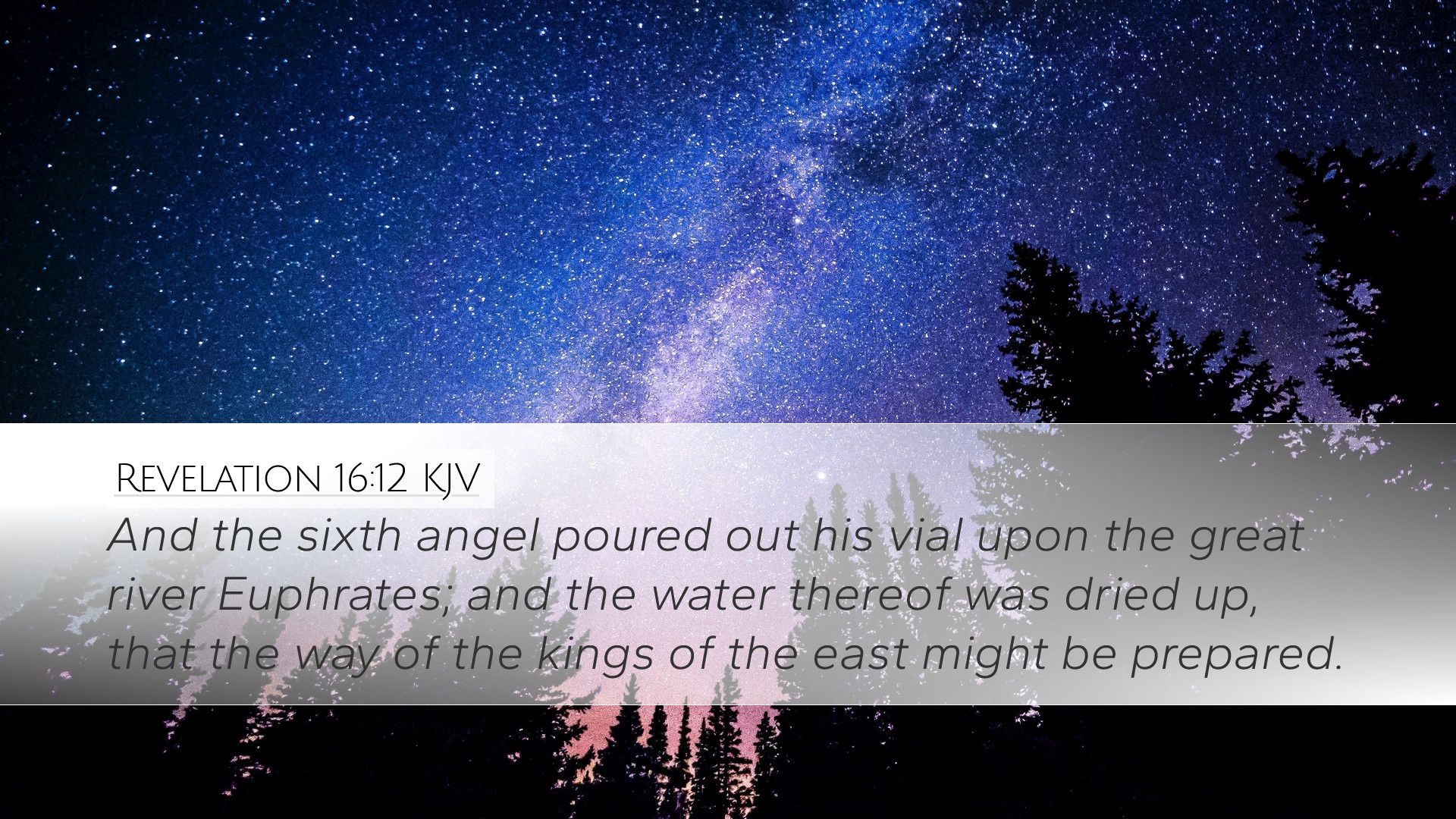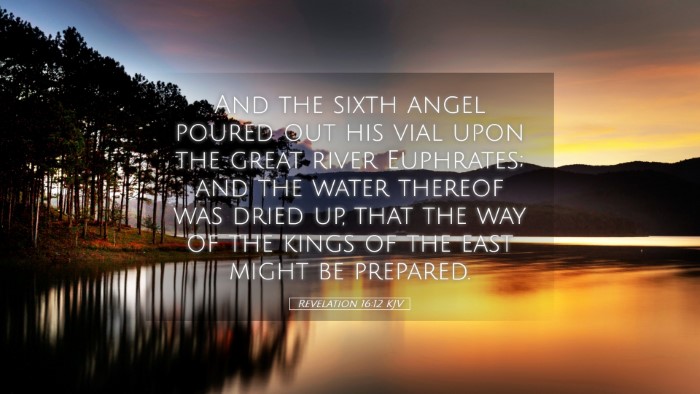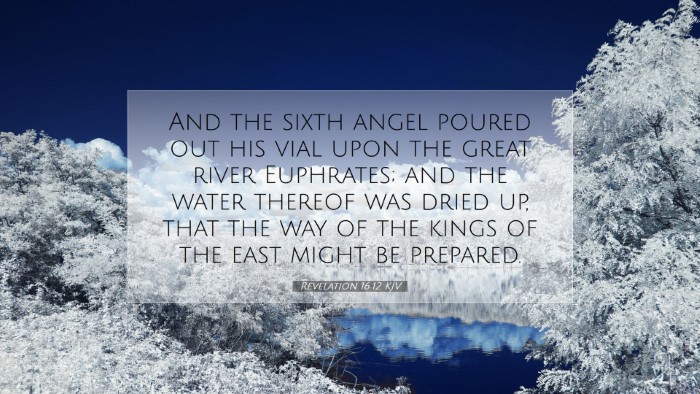Commentary on Revelation 16:12
Verse Reference: Revelation 16:12 (KJV): “And the sixth angel poured out his vial upon the great river Euphrates; and the water thereof was dried up, that the way of the kings of the east might be prepared.”
Overview
This passage occurs within the context of the seven last plagues (Revelation 16), which are part of God's final judgment upon the earth. The drying up of the Euphrates River signifies both a literal and symbolic preparation for divine intervention and judgment.
Contextual Analysis
The Euphrates River has historically been a significant geographical and spiritual symbol in scripture, representing a boundary of the Promised Land and the site of significant prophetic events. The drying up of this river suggests the removal of obstacles for the invasion of evil, and serves as a precursor to a theocratic confrontation.
Exegetical Insights
Symbolism of the Euphrates:
- The Euphrates is one of the four rivers mentioned in Genesis 2:14, linked to the earliest manifestations of God's creation and covenant.
- Throughout the Bible, the Euphrates often signifies the boundary between Israel and its enemies, emphasizing God's control over nations.
The Sixth Angel:
In this verse, the sixth angel pouring out his vial signifies instruments of God's judgment. Matthew Henry notes that "the vials represent both the wrath of God unleashed upon those who oppose Him and also the means by which God prepares to reveal His sovereignty." This event solidifies the impending judgment that awaits nations aligned against God.
Commentary from Classic Sources
Matthew Henry
Henry observes that the drying up of the Euphrates serves to prepare the way for the kings of the east. He argues that this may symbolize the gathering of forces that align against God, suggesting a climactic confrontation between good and evil. He states, "the preparation for the great battle is made evident, as it represents the removal of physical barriers that metaphorically may illustrate spiritual conditions."
Adam Clarke
Clarke emphasizes the significance of the kings of the east, interpreting them as powers emerging from regions historically seen as antagonistic to God's people. He mentions that these kings' approach may also signify a gathering for judgment, leading to an ultimate confrontation at Armageddon as foretold in Revelation 16:16. "The drying up of the Euphrates, thus, reflects the divine orchestration of events leading to a decisive moment in eschatological history," says Clarke.
Albert Barnes
Barnes elaborates on the practical implications of the drying up of the Euphrates, highlighting the immediacy of God's intervention. He asserts, "This divine act represents the culmination of God's control over nature for the purpose of His holy justice." He suggests that not only does this drying serve as a literal pathway for military movement but also reflects a broader theological truth: God is sovereign over human affairs, including their adverse actions.
Theological Implications
The theological implications of this passage reflect God's sovereignty over history and nations. The preparation of the way signifies the unfolding of God's redemptive and judgmental purposes. These events, as described in John’s vision, remind believers of the ultimate confrontation between divine authority and human rebellion.
The Kings of the East
The identity of the “kings of the east” is often debated. Some interpretations propose they represent various nations that arise in opposition to God's order, while others suggest they symbolize spiritual forces or powers in opposition to Christ. The figurative nature of 'east' could indicate a moral decline and spiritual opposition arising from global powers. This reflects the timeless struggle between light and darkness, righteousness and rebellion.
Application for Believers
The passage serves as a call for vigilance among believers. It invites contemplation on the spiritual realities behind geopolitical events. The drying up of the Euphrates compels the church to recognize God's sovereignty in a tumultuous world and assures believers that all history is under divine providence, pointing toward the ultimate victory of Christ.
Conclusion
In Revelation 16:12, the vivid imagery of the Euphrates River drying up encapsulates God's supreme authority in orchestrating history toward its eschatological climax. By integrating insights from revered biblical commentators, it becomes evident that this passage is not merely apocalyptic foretelling but is laden with rich theological significance, inviting reflection, understanding, and application within the life of the church today.


